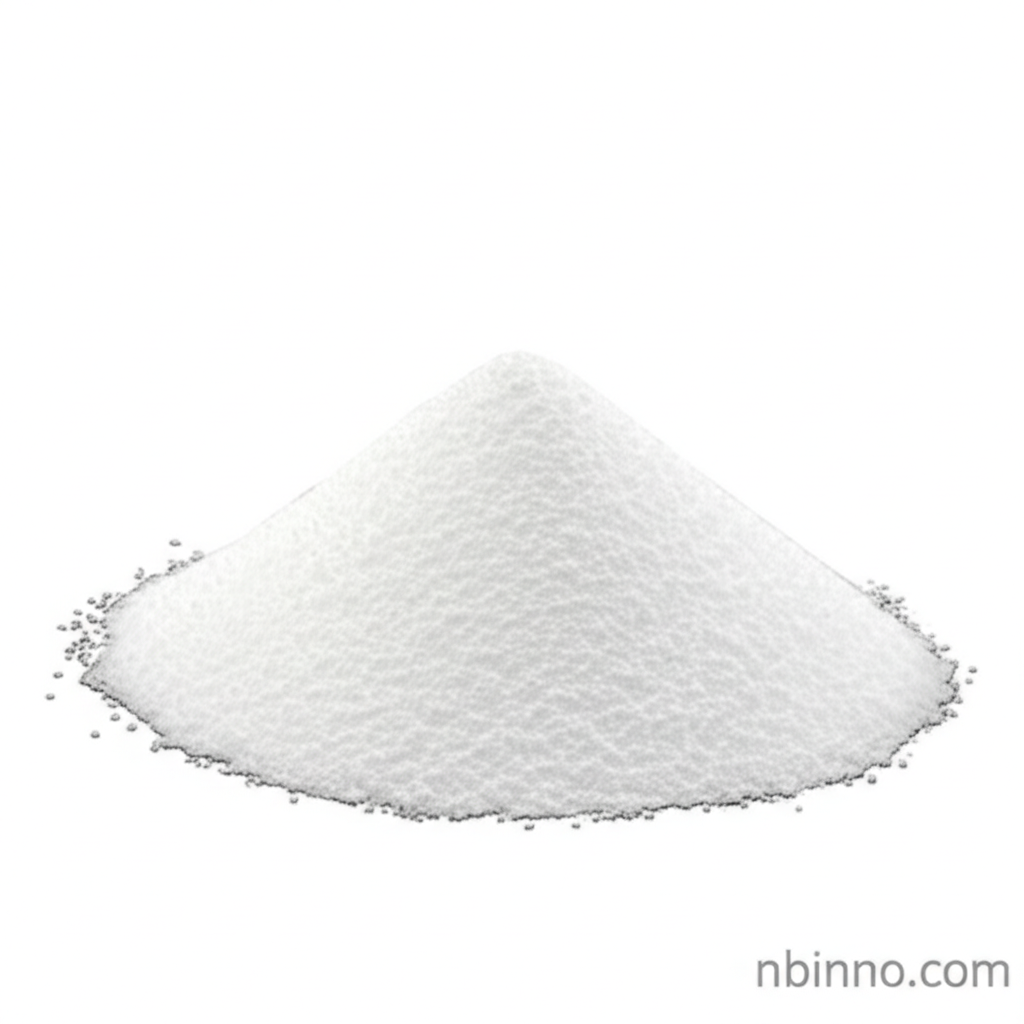Trimesoyl Chloride (TMC) CAS 4422-95-1: Key for Advanced Water & Gas Separation
Unlock superior performance in filtration and separation with Trimesoyl Chloride (TMC). This high-purity chemical intermediate is crucial for developing cutting-edge membranes, enabling efficient water purification, desalination, and gas separation technologies worldwide. Partner with us for your advanced chemical needs.
Get a Quote & SampleThe Essential Role of Trimesoyl Chloride (TMC)

Trimesoyl chloride (TMC)
Trimesoyl chloride (TMC), also known as 1,3,5-Benzenetricarboxylic acid chloride, is a powerful and versatile chemical intermediate. Its unique molecular structure makes it indispensable in the synthesis of high-performance materials, particularly in the realm of advanced separation technologies. This compound's reliability and reactivity ensure its critical role across various industrial and scientific innovations.
- Revolutionizing Membrane Synthesis: Trimesoyl chloride is a foundational component for the creation of advanced reverse osmosis membranes, crucial for applications like efficient seawater desalination.
- Enabling High-Purity Water Treatment: As a leading high purity Trimesoyl chloride water treatment chemical, TMC significantly contributes to processes that demand exceptionally clean water.
- Pivotal in Gas Separation Systems: This chemical intermediate is vital for designing high-performance gas separation membrane materials, improving efficiency in various industrial gas processing applications.
- Reliable Sourcing for Global Needs: When you buy TMC for reverse osmosis membranes, you are choosing a compound known for its consistent quality and broad utility in critical purification processes.
Unlocking Performance: Key Advantages of Our Trimesoyl Chloride
Assured High Purity & Quality
Our Trimesoyl Chloride boasts exceptional purity, consistently meeting or exceeding 99.0% MIN assay. We adhere to stringent GMP SGS certification, along with USP, BP, EP, and FCC standards, ensuring you receive a premium high purity 1,3,5-benzenetricarboxylic acid chloride supplier product for your demanding applications.
Enhanced Membrane Performance
Leveraging Trimesoyl chloride for reverse osmosis membrane synthesis significantly improves water permeability and the overall interfacial properties of membranes. This leads to more efficient and effective filtration systems, crucial for areas like seawater desalination.
Versatile Industrial Applications
Beyond its primary role in water treatment and membrane technology, Trimesoyl chloride's unique characteristics make it a valuable chemical intermediate in diverse fields, including the development of microcapsules and specialized materials for gas separation systems.
Key Applications
Reverse Osmosis Membranes
Trimesoyl Chloride is indispensable in the fabrication of advanced reverse osmosis membranes. Its unique reactivity allows for the creation of high-flux, high-rejection membranes crucial for large-scale water purification and desalination efforts, directly impacting the efficiency of modern seawater desalination processes.
Water & Gas Separation
This compound plays a critical role in developing cutting-edge technologies for both high water purification and efficient gas separation. Its properties enable the design of membranes that selectively separate components, optimizing industrial processes and environmental applications, including advanced gas separation membrane materials.
Advanced Material Synthesis
Trimesoyl chloride is a versatile chemical intermediate used in the synthesis of various high-performance materials. It's particularly notable in the production of cellulose-based materials and microcapsules, where it enhances critical physical and chemical properties, making it a key component for chemical raw materials for microcapsule production.
Biomedical Research Potential
Emerging research highlights the promising applications of Trimesoyl Chloride in biomedical fields. Studies suggest its potential in cancer research due to selective cellular uptake and its role in improving drug delivery systems for diabetes treatment, showcasing its diverse and evolving utility beyond traditional industrial uses.
